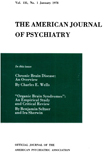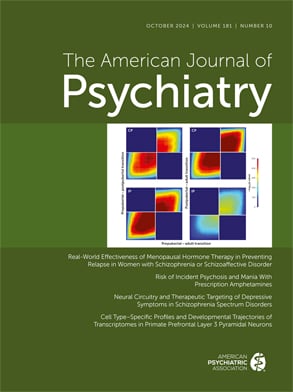Abstract
We have attempted, albeit in a somewhat circuitous fashion, to point up the kinds of experiences in the conduct of research that have led us to a critical reexamination of our concepts and experimental design in the field of psychosomatic relationships. In closing we wish to comment on the rôle of the clinician in this area of investigation and to make several recommendations derived from our own struggles for those who would participate in such work.
In the hospital and in the clinic it is the clinician who must estimate the order and severity of the patient's illness, select and administer therapy, and attempt to predict his future adjustment capacity. No matter how much or what kind of information is afforded him from other sources he must work directly with the patient in a rather specialized relationship. His powers of observation plus his shared experiences with the patient enable him to make those judgments that determine the ultimate evaluation of the case. It is the synthesizing quality of his observations, related as they are to the empathic bond between physician and patient, that is the singular advantage he possesses over all other techniques available for the study of the patient. It is also the basis for certain disadvantages and for the particular prejudices of psychiatry in the field of research. A major disadvantage lies in the subjective quality of much that enters into the formulation of these "synthetic judgments" and the difficulty one has in abstracting them to such a point that they may be treated as logical inferences from classifiable data. The clinician attaches value, meaning, and predictive significance to phenomena expressed behaviorally. It is necessary and proper that we do so even as we recognize that in so doing we may for the time being make it more difficult if not impossible to arrive at those epistemic correlations with the data of physiology that might lead to the global concepts we desire. We cannot fall back upon the constructs of physics and chemistry and do justice to the kinds of judgments it is ours to render.
In our introduction we stated that for us a concept of stress has relevance in terms of a concept of personality organization. Essential to any concept of personality dynamics, whether it be expressed in terms of psychoanalytic, topological, or Hullian mechanisms, is the viewpoint that behavior is motivated and occurs when a need, drive, or tension state exists in the organism. Without belaboring instinct theory we are reasonably secure in positing the existence of certain conditions in the organism that we may call tension states. These originate in disturbances of homeostasis, but with learning and maturation they come to operate effectively in the absence of immediate tissue requirements and ever more in a qualified relationship with environmental conditions. In response to these tensions we develop techniques of adjustment the aim of which is to reduce them to subthreshold levels. For the clinician, behavior, whatever its qualities may be, is a manifestation of change in tension states. The attributes of these tension states are dependent variables not only of the given stimulus, but of the pre-potent characteristics of the total organism as the emergent, on-going product of his experiences operating in and through the physiological matrix by means of which he occupies a position in a space-time field.
This being true, then collaborative research is by definition necessary for an ultimate understanding of human behavior at any or all levels. In our experimental design each of us shall, despite our differences in viewpoint, critically define three phases of the study as elements within a structured whole:
1. The stimulus—its form, magnitude, and meanings.
2. The mediating mechanisms within the organism—not the organism as a whole.
3. The response—its quality and quantity as a function of the stimulus and the mediating mechanisms.
Because of our differences any experiment will yield discrete sets of data which have significance primarily in an equally discrete frame of reference. In our zeal for holistic concepts we must guard against two tendencies:
1. The premature attempt to "explain" psychiatric phenomena in terms of physiologic data (and vice versa) on the basis of statistical correlations alone.
2. The tendency to ignore the data of our colleagues because we cannot translate them conveniently to our special needs.
As each discipline develops its own conceptual framework more adequately the kind of interpenetration we desire will occur and then we shall see emerge those unifying concepts necessary for a true science of human behavior.

